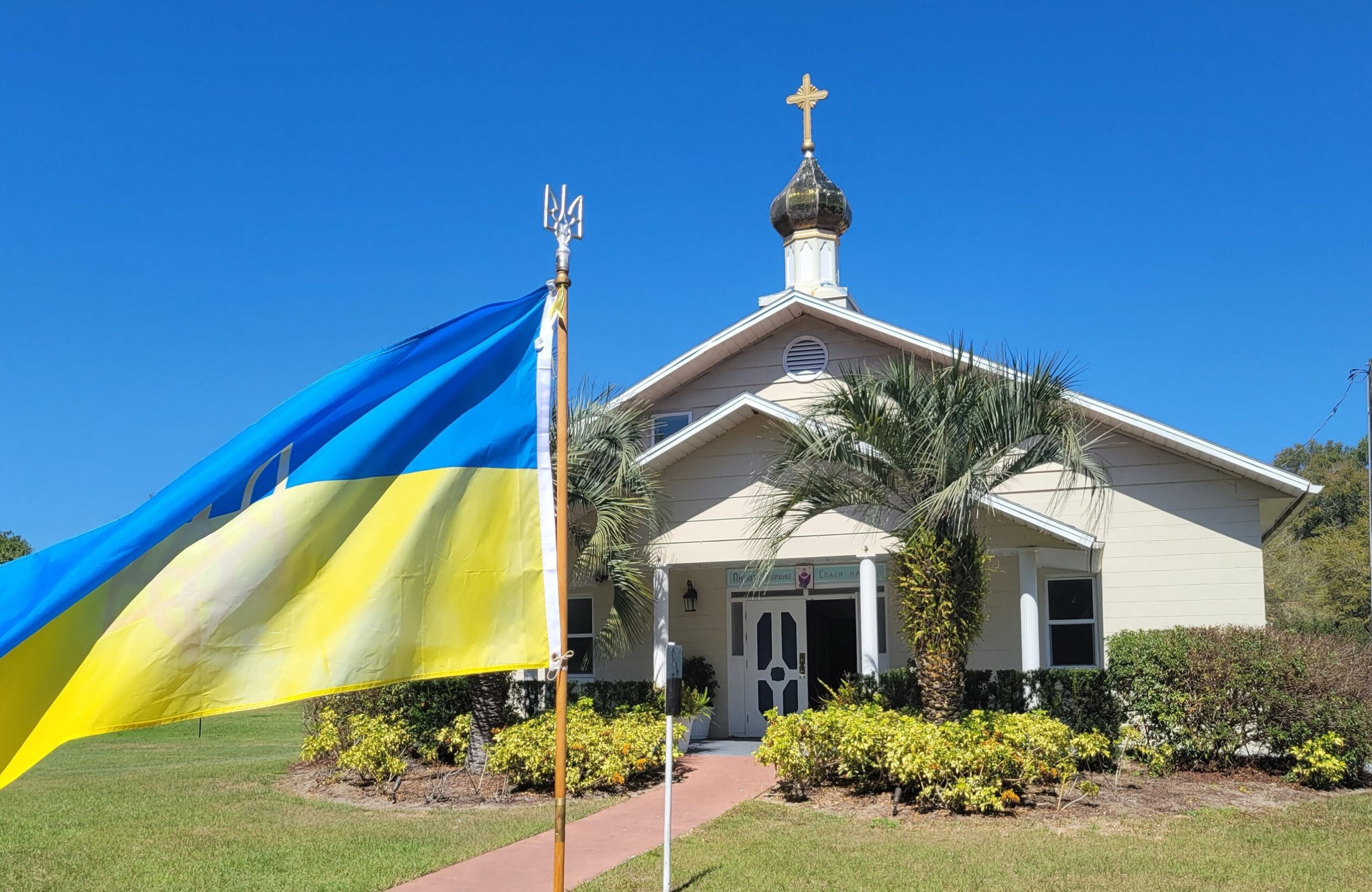The year was 988. Prince Volodymyr (Vladimir) of Rus’ (the ancient name for Ukraine) had consolidated his power, and was hoping to make a lasting name for himself by raising his people up to the status of a great nation. Among the obstacles he faced was the fact that all the great nations he knew and wished to emulate had abandoned paganism in favor of what he called the “Four Great Religions,” that is, Eastern Christianity, Western Christianity, Judaism and Islam. Guided by Divine Providence, Volodymyr decided to send out four royal delegations that would learn what they could about each of these and report back to him. He was, in fact, already leaning towards Eastern Christianity, thanks to the influence of his grandmother, St. Olga, for whom he had the deepest respect. The delegations, however, would serve both to confirm his choice and to impress the people with his fairness.
The delegations returned bearing exactly the news Volodymyr was hoping for. Those who had studied Judaism and Islam had misgivings about both. Those who had studied Western Christianity were mostly favorable, but those who had studied Eastern Christianity were enthusiastic in their praise. When they spoke of their experience attending Divine Liturgy at Hagia Sophia in Constantinople, their comment was, “we didn’t know if we were in Heaven or on earth!”
Thus, Volodymyr had his answer. Rus’ would become a Christian nation, and he set out to achieve this in true barbarian fashion. With his armies, he besieged and captured the southern city of Kherson, the last city of his realm still under imperial control. He then threatened to march on Constantinople if the emperor would not give his sister, Anna, to him in marriage. Being beset with problems elsewhere, the emperor reluctantly consented to this. Volodymyr was baptized at Kherson, and received Princess Anna in Christian marriage. Returning to Kyiv, he dismissed his five pagan wives and initiated his campaign of Christianization.
The idol of Perun was now pulled down and thrown into the Dnipro River. Members of the royal household and all government officials in Kyiv were compelled to submit to Baptism, and nearly 1,000 people were baptized in the Dnipro in one great ceremony. Similar events soon followed in other cities, with some of them putting up armed resistance before submitting. A group of priests remained at each city to care for the newly baptized Christians, and Volodymyr saw to it that churches were built for them, as well as schools.
Historians attest to the fact that Volodymyr underwent a true conversion during this time, as he now abandoned his barbaric ways and worked hard at being a true Christian ruler. He was faithful to his Christian wife Anna, he freely gave money to the churches and to the poor, and not only did he cease to love war, but also hesitated even to inflict capital punishment, telling his royal counselors, “I fear to sin.” By the time of his death in 1015, he was loved and admired by all the people of Rus’, even those who still clung to paganism. He is honored as a spiritual father by all Ukrainians, as well as by Russians, Belarussians and others.

